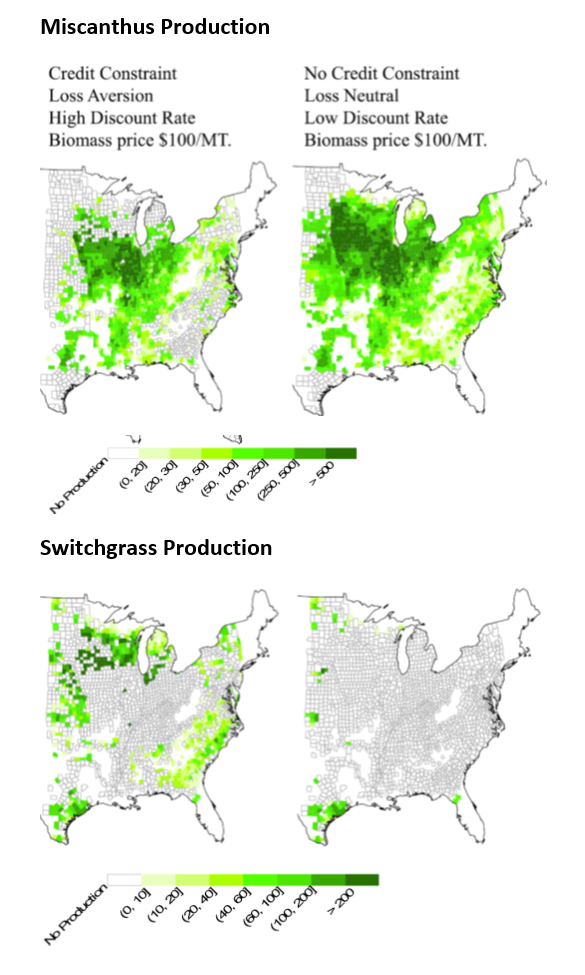Adopting Bioenergy Crops: Does Farmers’ Attitude Toward Loss Matter?
Themes: Sustainability
Keywords: Economics, Modeling, Software
Citation
Anand, M., Miao, R., Khanna, M. May 23, 2019. Data from: “Adopting Bioenergy Crops: Does Farmers’ Attitude Toward Loss Matter?“ University of Illinois. DOI: 10.13012/B2IDB-4181086_V1.
Overview

We apply prospect theory to examining farmers’ economic incentives to divert a share of their land to bioenergy crops (miscanthus and switchgrass in this study). Numerical simulation is conducted for 1,919 rain‐fed U.S. counties to identify the impact of loss aversion on bioenergy crop adoption, and how this impact is influenced by biomass price, discount rate, credit constraint status, and policy instruments. Results show that ignoring farmer’s loss aversion causes overestimation of miscanthus production but underestimation of switchgrass production, particularly when farmers are credit constrained and have a high discount rate. We find that establishment cost subsidy induces more miscanthus production whereas subsidized energy crop insurance induces more switchgrass production. The efficacy of these two policy instruments, measured by biomass production increased by per dollar of government outlay, depends on the magnitude of farmers’ loss aversion and discount rate.
Data
Illinois Data Bank includes:
- Summaries for yields, costs, prices, and acreage
- Establishment subsidies
- Crop insurance and riskiness
- Biomass profitability
- Software download
- Crop/land data